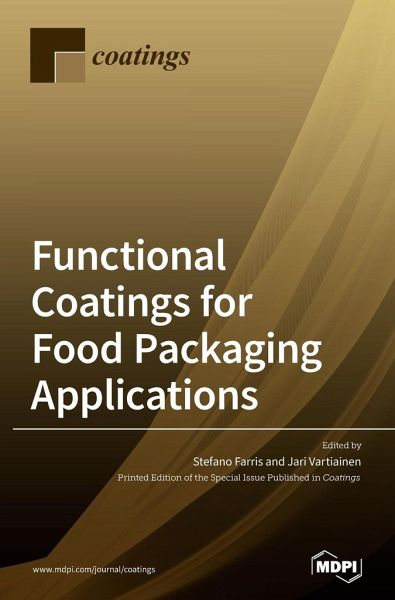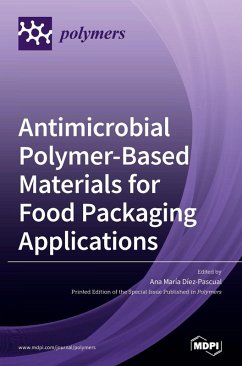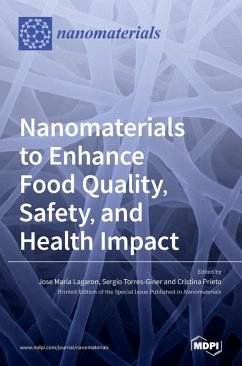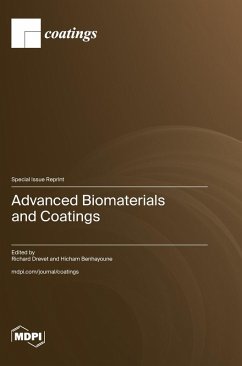
Functional Coatings for Food Packaging Applications
Versandkostenfrei!
Versandfertig in 1-2 Wochen
99,99 €
inkl. MwSt.

PAYBACK Punkte
50 °P sammeln!
The food packaging industry is experiencing one of the most relevant revolutions associated with the transition from fossil-based polymers to new materials of renewable origin. However, high production costs, low performance, and ethical issues still hinder the market penetration of bioplastics. Recently, coating technology was proposed as an additional strategy for achieving a more rational use of the materials used within the food packaging sector. According to the packaging optimization concept, the use of multifunctional thin layers would enable the replacement of multi-layer and heavy str...
The food packaging industry is experiencing one of the most relevant revolutions associated with the transition from fossil-based polymers to new materials of renewable origin. However, high production costs, low performance, and ethical issues still hinder the market penetration of bioplastics. Recently, coating technology was proposed as an additional strategy for achieving a more rational use of the materials used within the food packaging sector. According to the packaging optimization concept, the use of multifunctional thin layers would enable the replacement of multi-layer and heavy structures, thus reducing the upstream amount of packaging materials while maintaining (or even improving) the functional properties of the final package to pursue the goal of overall shelf life extension. Concurrently, the increasing requirements among consumers for convenience, smaller package sizes, and for minimally processed, fresh, and healthy foods have necessitated the design of highly sophisticated and engineered coatings. To this end, new chemical pathways, new raw materials (e.g., biopolymers), and non-conventional deposition technologies have been used. Nanotechnology, in particular, paved the way for the development of new architectures and never-before-seen patterns that eventually yielded nanostructured and nanocomposite coatings with outstanding performance. This book covers the most recent advances in the coating technology applied to the food packaging sector, with special emphasis on active coatings and barrier coatings intended for the shelf life extension of perishable foods.














